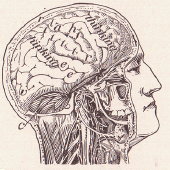The Neurological and Creative Toll of Digital Overload
Topics
 If you’re like a lot of people, during your work day you might check 40 websites. You could be switching between programs such as Word and Excel and your email application 36 times an hour. You probably stop what you’re doing — or at least pause — when a text message buzzes or an email comes in or your cell phone rings.
If you’re like a lot of people, during your work day you might check 40 websites. You could be switching between programs such as Word and Excel and your email application 36 times an hour. You probably stop what you’re doing — or at least pause — when a text message buzzes or an email comes in or your cell phone rings.
Matt Richtel, technology reporter for the New York Times, says in an interview on the NPR program Fresh Air that for all the productivity upsides to digital consumption, there are huge downsides, too, including changes in the brain that seem to affect not just the ability to engage in conversation but the ability to be creative, too.
“Twenty years of glorifying all technology as if all computers were good and all use of it was good, I think science is beginning to embrace the idea that some technology is Twinkies and some technology is Brussels sprouts,” Richtel says. “If we consume too much technology, just like if we consume too much food, it can have ill effects. And that is the moment in time we find ourselves in . . .with the way we are digesting, if you will, technology all over the place.”
Richtel notices, he says, that he’s “not quite as engaged in my world when I’m constantly using devices as I am when I’m away from them.” Away from them, “I can give myself over to conversations a little bit differently.”
Awarded a Pulitzer Prize this year for his Times series “Driven to Distraction,” about the dangers of driving while multitasking with cell phones and other devices, Richtel says that the digital glut appears to not just increase distraction but decrease creativity.
See, for instance, what happens after a periodic gadget fast.
After three days, he says, “you start to feel more relaxed. Maybe you sleep a little better. Maybe you don’t reach for your phone pinging in your pocket or even feel compelled to. Maybe you wait a little longer before answering a question. Maybe you don’t feel in a rush to do anything. Your sense of urgency fades.�

Comments (9)
Digital Sabbath | Quentin Flokstra
The importance of down time « Do You Accept?
Jason Denning
Great Articles to read during a storm | Radio KBHR
Viktor O. Ledenyov
San Francisco Attractions
BuckyBall
Karla
Maria